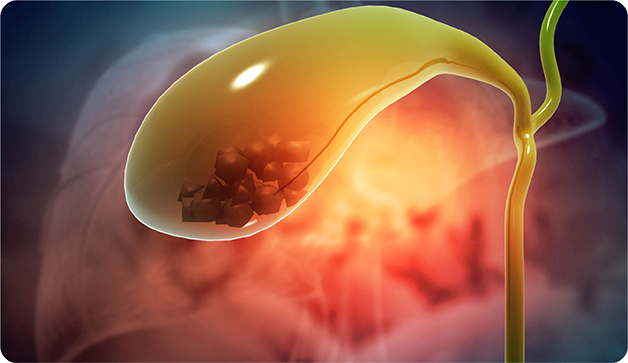Gallbladder Cancer
The gallbladder is a pear-shaped organ located right below the liver. The organ secretes bile juice which is responsible for digestion. A cancer growth in this organ is rare and usually develops as cancer


Types of Gallbladder Cancer
Based on the type of cell, gallbladder cancers are of the following types:
Adenocarcinoma: This is the most common type of gallbladder cancer which starts in the inner lining of the gallbladder.
Adenosquamous Carcinoma: This is a rare type which starts in the outer lining of the organ.






